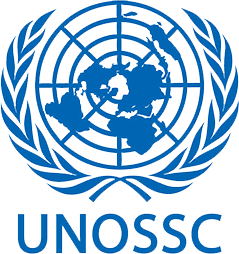SEED EN
SEED – Security and Development in the Global South

The recognition of the intertwined relationship between security and development as a public policy issue is not a recent phenomenon. However, the incorporation of the theme “safe and inclusive societies” as one of the 17 Sustainable Development Goals (SDGs) in 2015 and recent advances in the international agenda on the theme of “sustained peace”. More than that, SDG 16 and an idea of sustained peace, security and development as inseparable dimensions in the design and implementation of public policies.
Often framed as the most violent region in the world, Latin America will certainly not be the center of debates on the research and development phase – and, in this sense, it is the central theme of the first line of research.
Indeed, the region is one of studies on serious problems, but it is also a stage for public security “models” in terms of approaches to more traditional development “formulas”. In this sense, simultaneously with the figure of “problem region”, several Latin American security and development policies have circulated in the international community as “good practices” for the construction of a “sustained peace”. This circulation and institutional mechanisms of South-South Cooperation, but not only, being through more formal circuits, occur
But several challenges can be improved in the region so that the potential is better used. One of them concerns the isolation of development communities as well, on the one hand, security policies, on the other – says observed in the global field. Or fields, whether the inseparable character between security and development rationalities is not reflected in the interaction between the professionals of these two.
One of the main effects of the lack of dialogue poses a series of challenges to the potential of the potential observed in Latin America: nurtured in the field of development, they are not infrequently crossed by an age of taking advantage of security, which is often harmful and prevents the results from being achieved. will be welcomed.
Part of the finding that the production of a systematic knowledge that works the nexus-development of a form of BPC security research is still rare, it addresses issues such as:
- How did the increasing militarization of public security, for example in Latin America, affect the durability of development projects in the region?
- How do international development projects impact prospects for peace at different times and contexts?
- How have public security models and implementation development projects in the region contemplated participation and social inclusion in their design and execution?
- How do these experiences lead to the circulation of practices in terms of security and development?
- In the context of the challenges of South-South Cooperation, how has Latin America figured in the global architecture for monitoring and evaluating projects at the intersection between peace and development?
- What are the main modes of interaction between professionals in the field of development and those in the field of public security in Latin America?
In the long term, the line of research expects:
- expand and intensify the participation of Latin American countries in global governance institutions within the debate on the security-development nexus;
- learn from the debates on the role of actors on security and, above all, touch the marginalized group;
- advocates as relevant institutions, including through international cooperation, for the prevention of violence;
- Future alternatives in the UN development order, as the UN definition, according to the security definition, according to the security, of development, of the UN, as the UN definition, of the Sustained Pac2Paz of the Agenda for Migration. agreements to protect the environment.
Thus, it articulates with the different themes of the project explored in the BPC – right to international cooperation, sustainability, search for the city and the role of technology and innovation –, constantly dialoguing with these lines in order to understand and promote intersections.
Publications
Events
Institutional Support




